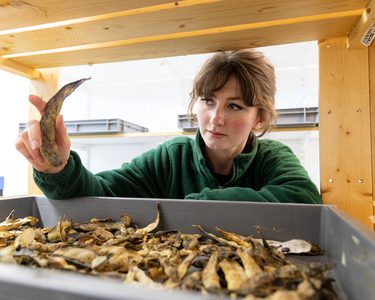Donate to our Heritage Seed Library

We’re losing vegetable seed varieties at an alarming rate - leading us closer to vulnerable monocultures and the loss of valuable cultivated biodiversity. But you can help us stop this decline by donating to our Heritage Seed Library.
If you didn't get chance to donate in our recent Big Give campaign - click this link to donate today!
Your donations will help us continue our vital work preserving and conserving precious heritage vegetable seeds for future generations of gardeners.
Seeds are just the start
Our Heritage Seed Library conserves 800 varieties of vegetables in its National Collection that might otherwise be lost. It stores them for safekeeping, regrows to replenish stock, and shares 30,000+ packets of seed annually to growers and Seed Guardians across the UK.
Just a handful of heritage seeds is the beginning of something much bigger: and saving them can help preserve declining cultivated biodiversity.
What is cultivated biodiversity? This means growing as wide a range of crops and plants as possible to offer nutritional and genetic diversity, and help us better withstand pest and diseases.
Conserving heritage, landrace and open-pollinated varieties makes our horticultural and agricultural system more sustainable, saves skills and heritage, future-proofs our food system and helps gardens and growing spaces develop resilience in the face of climate change.
What your donations will support
Your donations will help us research, grow and evaluate new heritage vegetable varieties and maintain and upgrade vital seed-saving equipment. With your funds, we’ll be able to share more varieties via our Seed List and to our Seed Guardians so they can continue to be grown for future generations.